Summer School
It seeks to support a new generation of scholars investigating the role of law in both creating and addressing overlapping ecological and social crises. It does so through collaborative seminar-like sessions, writing workshops, mentoring, and social activities that embed the city of Amsterdam in global dynamics, such as colonization, international trade, the fossil fuel economy and counter-hegemonic dynamics.
Some of the themes explored over the years include: critical legal methods, social reproduction, law and technology, sustainable markets and environmental justice and reparations. It has hosted scholars from India, Brazil, Italy, Poland, China, among others (main organizer: Ivana Isailović).
The school is partly financed by the Dutch Ministry of Education.
Watch this short video to learn more about the Summer School:
-
2024
For its fourth edition, the Summer School focused on collective critical work bridging critical theory and transformative reforms. It featured thematic sessions and group work on law and global political economy, on the crises of social reproduction, on ethnographic methodologies, on corporate power, on global sustainable finance, a reading group on the meaning of 'non-reformist reforms' (see Akbar, 2024), a roundtable on technology and transformative possibilities for the global economy, a session with a professional coach (Carol Kiriakos) on writing as an embodied practice, and a career development session on publishing in top international legal journals- among others.
The summer school was supported by the Erasmus Plus Programme of the EU.
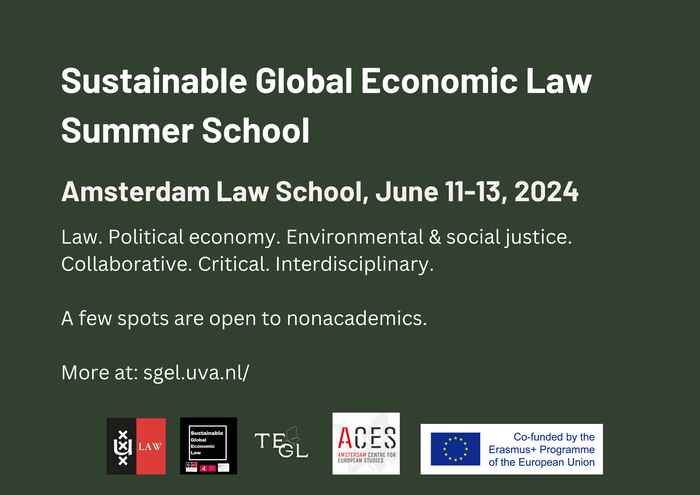
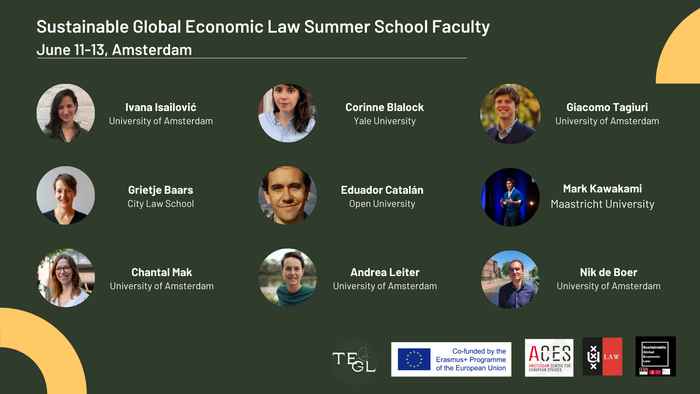
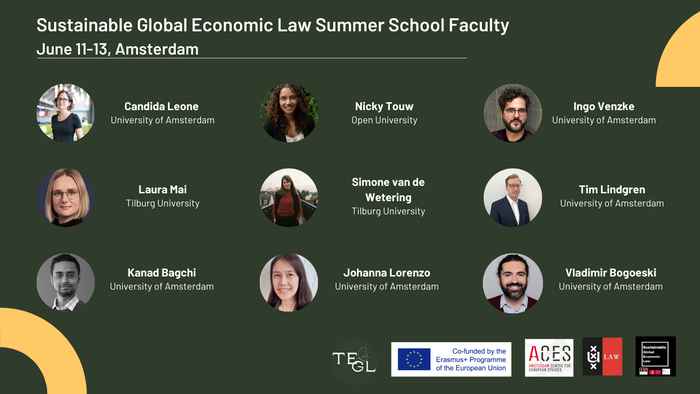
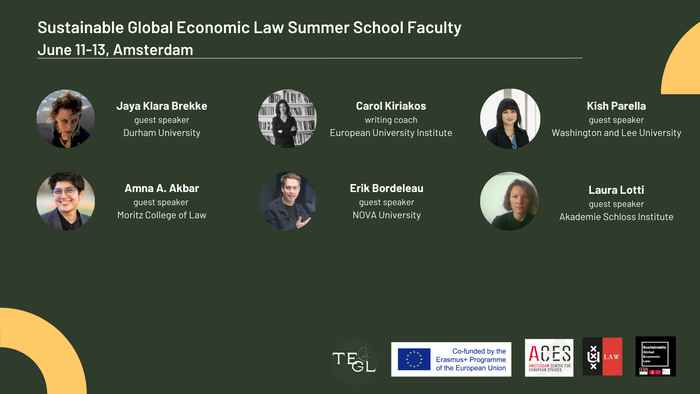
-
2023
The school featured reading groups, small writing workshops and sessions on career development on some of the following themes: critique in law, capitalism and value in law, environmental justice and reparations, sustainable global markets, and organizing and building research networks. Participants visited the exhibition “Someone Is Getting Rich” at the Tropenmuseum about the relationship between the global financial system and colonialism.
The Summer School was preceded by a two-day event entitled “Law’s Role in Sustainable Globalization: crises, tragedy and transformative possibilities featuring a keynote by Professor Radha d’Souza, part of the Sectorplan on law and sustainable globalization.
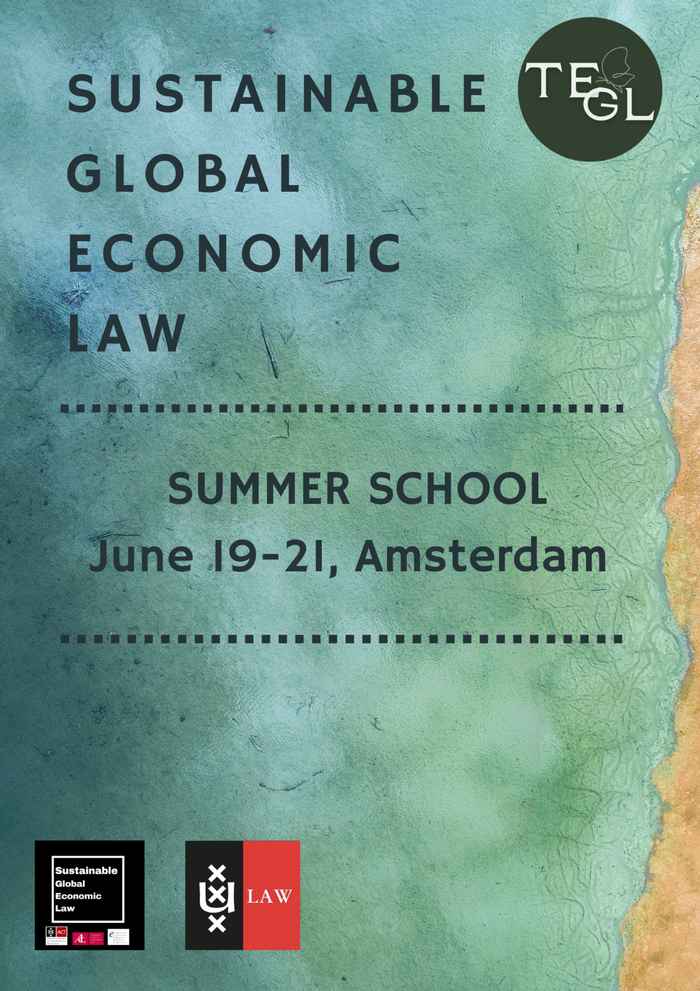
-
2022
Reading groups and writing workshops covered the following themes: the divides between social and environmental justice, intersectionality as legal method(s) and practice(s), sustainable global markets, the links between the economy, gender, race and culture and the (re) imagining sustainable futures. It featured a guided visit to the exhibition ‘Colonial Histories’ at the Amsterdam Museum and the event “Making utopia real: what comes after the ‘just & green transition?” bringing together scholars, activists and artists, organized in partnership with the Mediamatic Art Center.
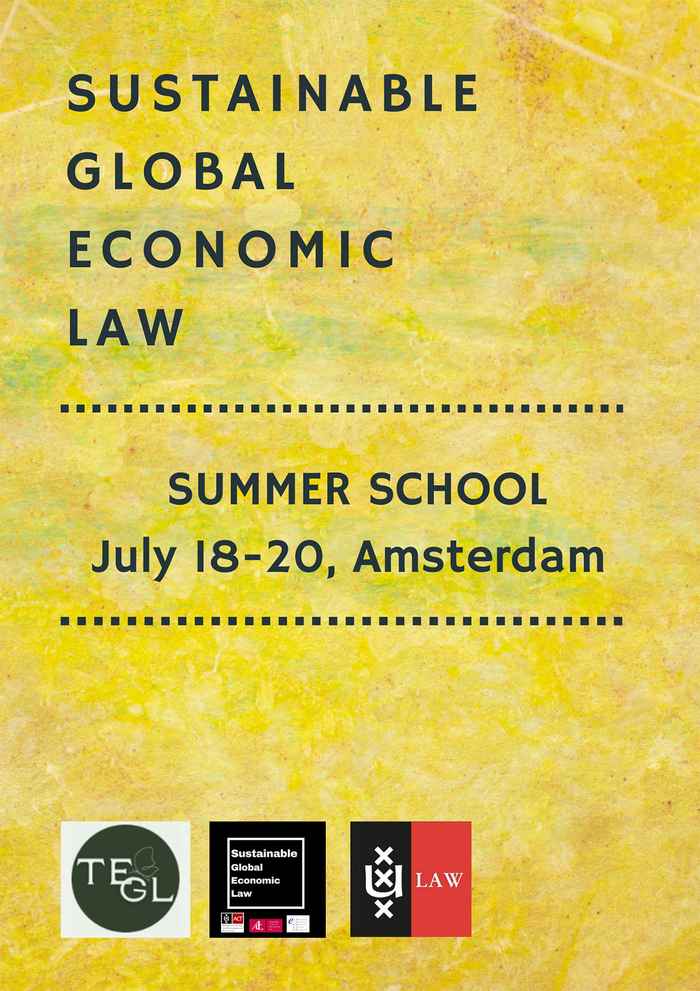
-
2021
In 2021, Candida Leone organized a 4 day summer retreat with a small group of PhD candidates from UvA, Tilburg, Open University and Maastricht during which instructors from UvA hosted conversations and served as commentators on participants' projects.